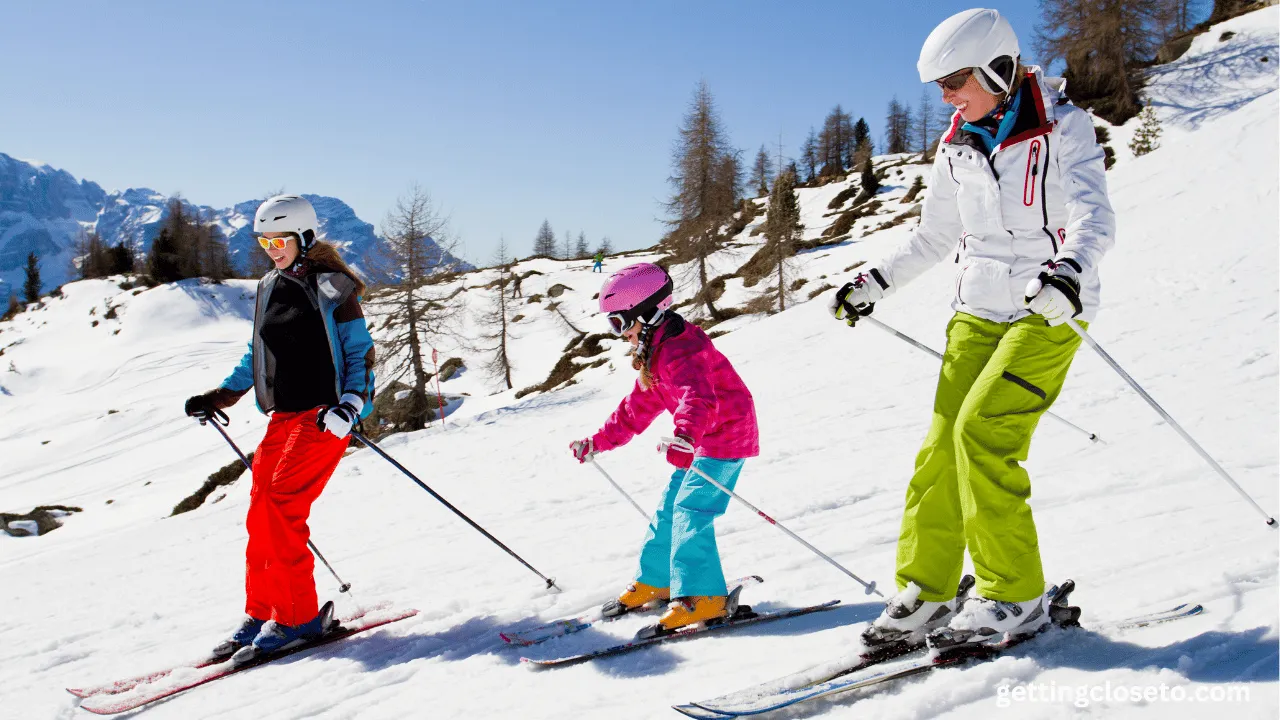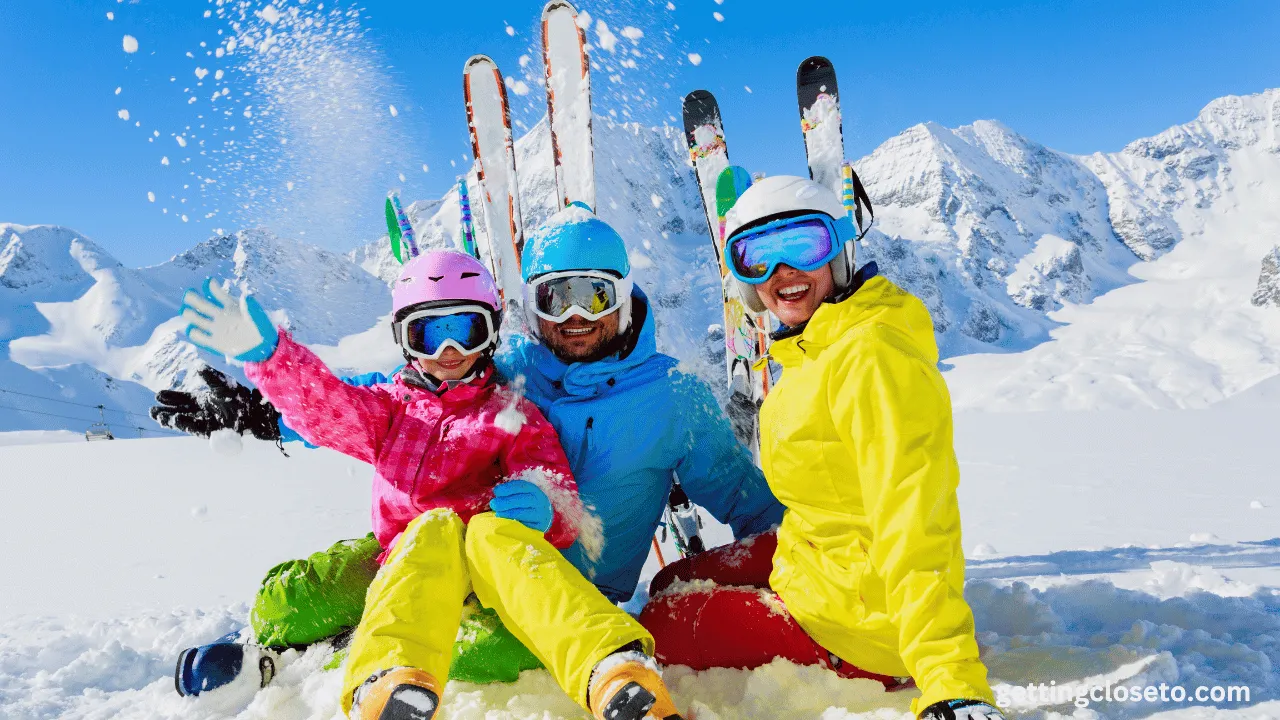Are you planning on hitting the slopes? Roughly 1.5 million UK residents go on a ski holiday every year. If you want to join them, a few simple tips can turn a beginner into a skiing master.
Contents
1. Practice before you go
You might not have snow-capped mountains on your doorstep, but skiing is still an option. Hit a dry ski slope for practice, or visit a snow ski slope for professional skiing tuition. You’ll thank yourself when you get there.
2. Buy the right equipment
Thick winter clothes are essential when you’re going skiing. Layer up, and wear plenty of moisture-wicking clothing. But don’t forget other essential skiing equipment. You’ll need a pair of ski goggles and should always wear a helmet. Make a ski packing list, and check items off as you go.
Think about everything you need, from a water bottle to a multi-tool for on-the-go repairs. There’s nothing worse than being far from your accommodation, in full ski clothing, and realizing that you’ve forgotten something.
3. Make sure you have travel insurance
Even the best skiing master knows that travel insurance is essential. Winter sports injury claims averaged over £4,500 in 2017, with medical bills often totaling almost £200k.
1.7% of UK ski tourists end up coming home on crutches. Injuries aren’t rare, and being prepared with travel insurance will save you from a lifetime of debt.
4. Be sensible about your abilities
Don’t try to show off or oversell your skills. This behavior can lead to risks and isn’t the best way to improve.
Knowing your limits and being sensible about your abilities will keep yourself and others safe. You’ll also be more likely to get the help you need to improve your skiing technique.

5. Take some time to observe
Stop regularly for observation rests. Give your body a chance to recover while watching how others tackle slopes. You can learn a surprising amount by watching others.
See the routes other people take down the slopes and any subtle techniques you might adopt.
6. Stay where you can be seen
Nobody wants to be in a skiing accident far from the view of others. The best skiers know that carrying emergency contact information is vital and that going off-piste comes with enormous risks.
If you’re trying to become a skiing master, you’re best off pushing the limits with somebody else. You should always be sure that someone will know where you are if something goes wrong.
To improve at skiing, you must push yourself and constantly try more difficult things. But make sure that people know roughly where you’re skiing and that you never stray too far from busy pistes.
It’s best to learn, grow, and develop in the presence of other people rather than forge ahead alone and take unnecessary risks.
Conclusion:
In conclusion, embarking on a ski holiday can be an exhilarating experience for beginners and seasoned enthusiasts.
By following simple tips, such as practicing beforehand, ensuring proper equipment and attire, and prioritizing safety through travel insurance and sensible decision-making on the slopes, anyone can elevate their skiing adventure from ordinary to extraordinary.
Observing others, knowing one’s limits, and skiing in the company of others not only enhances skill development but also fosters a sense of camaraderie and security.
Ultimately, whether carving down groomed pistes or tackling challenging terrain, the joy of skiing is amplified by careful preparation, responsible behavior, and a shared passion for the mountains.
So, as you plan your next ski getaway, remember these guidelines to make the most of your time on the slopes and create unforgettable memories in the snow-covered wilderness.
FAQs
How should I prepare for a ski holiday if I’m a beginner?
Practice before you go by visiting dry ski slopes or real snow ski slopes for professional tuition. Ensure you have the right equipment, including thick winter clothes, ski goggles, and a helmet. Make a comprehensive ski packing list to avoid forgetting essential items.
Why is travel insurance important for a ski holiday?
Travel insurance is crucial for a ski holiday because injuries are not uncommon, and the cost of medical bills can be significant. In 2017, winter sports injury claims averaged over £4,500, with some medical bills totaling almost £200k. Having travel insurance can prevent financial burdens in case of accidents or injuries.
How can I improve my skiing technique as a beginner?
Be sensible about your abilities and avoid showing off or overselling your skills, which can lead to risks—observing others on the slopes to learn from their techniques and routes. Stay where you can be seen and ski with someone nearby to ensure safety in emergencies.
What should I wear for skiing?
Layer with thick winter clothes and wear moisture-wicking clothing to stay dry and warm. Essential equipment includes ski goggles and a helmet for safety. It’s crucial to check off items from a ski packing list to ensure you have everything you need for a comfortable and safe skiing experience.
Why is it important to know your limits when skiing?
Knowing your limits and being sensible about your abilities are essential for slope safety. Pushing yourself too hard can lead to accidents and injuries. Recognizing your limits allows you to seek help when needed and improve your skiing technique gradually without taking unnecessary risks.








